

Evita |
||
|
|
||
| Watford Palace Theatre | ||
|
|
Andrew Lloyd Weber |
|
|
An Amateur Production by arrangement with the Really Useful Group |
||
Follow Us:
A very warm welcome to you all from Cassio Productions to the Watford Palace Theatre for our production of 'Evita'. We are so excited to be back at the Watford Palace after 3 years since our last production of Sister Act in 2019 and we hope you enjoy the show.
'Evita' tells the story of Eva Peron. the wife of the President of Argentina during the 1940s and 50s. You can read a summary of her life story in the section of this programme - 'The Story of Eva Peron'.
If you are interested in joining or helping with Cassio then please let us know by talking to any one of us after the show or contacting us via our Facebook page or website pages.
Our next show will be a compilation show called 'A Cabaret of Musicals' which will be at the Henderson Hub in Abbots Langley from 17th to 20th May before we come back to the Watford Palace next November with 'Kinky Boots'.
Now sit back and relax and enjoy the show!
Song List
Act One
A Cinema in Buenos Aires
Requiem
Oh What a Circus
On this Night of a Thousand Stars
Buenos Aires
Goodnight and Thank You
The Art of the Possible
Charity Concert
I'd Be Surprisingly Good For You
Another Suitcase in Another Hall
Peron's Latest Flame
A New Argentina
There will be a 20 minute interval between acts
Act Two
Entr'acte
On the Balcony of the Casa Rosada (inc Don't Cry for me Argentina)
High Flying Adored
Rainbow High
Rainbow Tour
The Chorus Girl Hasn't Learned
And the Money Kept Rolling in
Waltz for Eva and Che
You must Love Me
She is a Diamond
Dice are Rolling
Eva's Final Broadcast
Montage
Lament
Cast
Creative Team
Elise Betts
Clive Ogden
Emily Sissons
Ben Terry
Jason Brameld
Kevin Pugh
Nikki Scott
Sophie Goodman
Phil McCusker/Alex Kenny
Jill Gillam
Elion Budden, Becca Bygate, Tim Redman, Ella Rogers
Tim Redman
Lucy Faulkner & Emily Sissons
Sophie Skelton
Susan Barret, Katie Barrett, Dave Lee, Payton Gates, Steve Webb, Hollie Cooper, Mark Cooper, Jason Margolin, Lynsey Hall, Dee Keyte, Ann Richardson, Clare Hamilton
Martin Smith, Marc McDonald, Ian Parrott
Owen Williams, Chris Swallow, Rob Hall
Lauren Robson
Cassio Management Team
| Chair | Alex Kenny |
| Vice Chair | Dee Keyte |
| Secretary | Dorothy Lawson |
| Treasurer | Jill Gillam |
| Membership Secretary | Ella Rogers |
| Team Members |
Adam Christie Rebecca Espinoza Holly Noble Emily Sissons |
About Cassio Productions
Who We Are
Cassio Productions produce musical theatre in the Watford Area. We are a membership-based group staging quality musical theatre shows at least once a year. Purely for fun, our performers and technicians rehearse and perform together in a vibrant and creative atmosphere. The group is primarily for adults (age 16+) who rehearse in the evenings, several times a week and occasionally at weekends. We welcome those who enjoy theatre purely as a hobby but we also enjoy working with those who already have or aspire to work in the professional theatre.
The first Cassio show was in 1949 when friends, drawn from the choir of St Michael's Church in Watford who before the Second World War gave concerts, decided to branch out and produce pantomimes and shows. This group used the name Cassio Operatic Society, which still exists today as our registered charity name.
From our humble beginnings Cassio has gone from strength to strength and we now use the name Cassio Productions to promote our large-scale productions around the area.
For nearly sixty years Cassio have performed shows at the Watford Palace Theatre, a wonderfully restored Edwardian Theatre in the heart of the town. Other venues in Watford have included the Pump House Theatre and the James Theatre with performances further afield at Watersmeet in Rickmansworth and the Henderson Hub in Abbots Langley.
The Story of Eva Peron
Eva Perón, in full Eva Duarte de Perón, née María Eva Duarte, by name Evita, (born May 7, 1919, Los Toldos, Argentina—died July 26, 1952, Buenos Aires), second wife of Argentine Pres. Juan Perón, who, during her husband’s first term as president (1946–52), became a powerful though unofficial political leader, revered by the lower economic classes.
Duarte was born in the small town of Los Toldos on the Argentine Pampas. Her parents, Juan Duarte and Juana Ibarguren, were not married, and her father had a wife and another family. Eva’s family struggled financially, and the situation worsened when Juan died when she was six years old. A few years later they moved to Junín, Argentina. When Eva was 15, she traveled to Buenos Aires to pursue an acting career and eventually began performing steadily in radio parts.
Eva attracted the attention of a rising star of the new government, Col. Juan Perón, and the two married in 1945. Later that year he was ousted by a coup of rival army and navy officers and briefly taken into custody. After his release, Juan entered the presidential race. Eva was active in the campaign, and she won the adulation of the masses, whom she addressed as los descamisados (Spanish: “the shirtless ones”). He was elected and took office in June 1946.
Although she never held any government post, Eva acted as de facto minister of health and labour, awarding generous wage increases to the unions, who responded with political support for Perón. After cutting off government subsidies to the traditional Sociedad de Beneficencia (Spanish: “Aid Society”), thereby making more enemies among the traditional elite, she replaced it with her own Eva Perón Foundation, which was supported by “voluntary” union and business contributions plus a substantial cut of the national lottery and other funds. These resources were used to establish thousands of hospitals, schools, orphanages, homes for the aged, and other charitable institutions. Eva was largely responsible for the passage of the women’s suffrage law and formed the Peronista Feminist Party in 1949. She also introduced compulsory religious education into all Argentine schools. In 1951, although dying of cancer, she obtained the nomination for vice president, but the army forced her to withdraw her candidacy.
After her death in 1952, Eva remained a formidable influence in Argentine politics. Her working-class followers tried unsuccessfully to have her canonized, and her enemies, in an effort to exorcise her as a national symbol of Peronism, stole her embalmed body in 1955, after Juan Perón was overthrown, and secreted it in Italy for 16 years. In 1971 the military government, bowing to Peronist demands, turned over her remains to her exiled widower in Madrid. After Juan Perón died in office in 1974, his third wife, Isabel Perón, hoping to gain favour among the populace, repatriated the remains and installed them next to the deceased leader in a crypt in the presidential palace. Two years later a new military junta hostile to Peronism removed the bodies. Eva’s remains were finally interred in the Duarte family crypt in Recoleta Cemetery in Buenos Aires.
Eva inspired numerous books and other works, both in Argentina and abroad. Notably, her life was the basis for the musical Evita (1978), by Andrew Lloyd Webber and Tim Rice; it was later adapted into a film (1996) starring Madonna.
By The Editors of Encyclopaedia Britannica • Last Updated: Oct 4, 2022
Our Grateful Thanks
Our Grateful thanks go to
- Watford Palace Theatre and staff
- Leavesden Green JMI School
- Rennie & Co for sponsoring this production
- The Friends of Cassio Productions
- Martin Smith and Origin8 Design Ltd for designs, photography and additional set design
- Tim Redman for video footage and props
- Rickmansworth Players
- Pumphouse Theatre
- Costume Workshop for providing the costumes
- Shepperton Wigs
- Our front of house team
- Lucy Faulkner for marketing and rehearsal photography
Director's Notes
“Eva’s pretty hands reached out and they reached wide,”
When one thinks of Eva Perón, it’s impossible not to think of her hands. Whether they’re reaching out to the heavens as she stood outside the balcony of the Casa Rosada to address the crowds, or extended as a warm greeting to those who came to greet her, her fingers covered in exquisite jewellery, topped by a perfect manicure, are central to the image of the iconic Argentinean First Lady and I hope that our production of Evita highlights the power and influence of those hands.
We're used to believing the narrator in a show or novel. But in Evita, Che is a narrator with an agenda. He can lie. He is hardly impartial. We soon realise that we’re getting two diametrically opposed points of view in Evita. Can we know that Che’s accusations are true? We see no evidence that Eva stole money from her foundation (in real life, Juan Perón did most of the dirty work). And if the poor are so much worse off, as Che claims, then why do they love Eva and Juan so much? Maybe no one on stage is telling the whole truth, including Che as narrator. Originally, Tim Rice wrote him based on Che Guevara, but it was not his intention to express that in production. That was something that Hal Prince added on in the original production and that Michael Grandage did not add on in the Broadway revival. For me, Che helps to give the context of who Guevara was and what his political beliefs were, but in our version, Che represents the revolution and is the (unpopular) voice of the silenced, acting almost like a Greek chorus, cross-examining Eva’s every move as she rises to power. Seeing the story through Che’s eyes allows us to criticise Eva’s politics, the regime, and all the things the Peróns did wrong.
Eva Perón became First Lady of Argentina at age 25, and soon after would become one of the most famous women in the world. Her every move and word became newsworthy, and while many people criticised her for what they deemed as extravagance, she made the globe turn their eyes to a nation trying to recover from a period of political unrest.
I believe that part of the reason Eva Peron’s story fascinates audiences is because her rapid rise to fame and power comes from a deep desire for legacy. And moreover, the fact that this person got to where she got, when she got there, is something that I find very admirable and inspiring, particularly as a woman.
For me, Evita is a cautionary tale in the sense that it warns us of what might happen if we allow our obsession for leaders to go too far. Her story is an example of how people can get swept up in adoration for leaders or movements—in some cases, without attention to what they are actually standing behind. Hal Prince said about Evita, "It’s not about politics. Media manipulation, that’s what it’s about. And the fact that we have next to no idea who really lives in the White House, for whom we’re voting, what’s going on. We’ve learned too well how to package things, and now, people."
“Hands, magic, rings, glamour.”
Meet the Company
Katie Stephenson
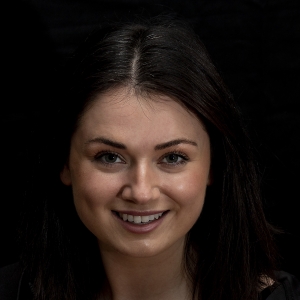 Katie is thrilled to be making her debut with Cassio Productions and to be working again with Elise and Clive. She studied music as a first study singer at the University of Leeds and Paris-Sorbonne University where she predominantly trained in classical, opera and choral singing. Katie is excited (and slightly terrified) to be taking on the role of Eva which has taken her far out of her vocal comfort zone!
Previous roles have included Maria (West Side Story), Edith (Pirates of Penzance) and Ida (Die Fledermaus) with St Albans Musical Theatre Society and St Albans Chamber Opera. Most recently, Katie was part of the ensemble cast of the critically acclaimed production of Rent at the Roman Theatre Festival.
By day, Katie is Assistant Head, Co-curricular at Abbot’s Hill School where she loves to share her own passion for the performing arts with her pupils. In any other free time, you can find Katie on the netball court, playing or coaching for SAS netball club.
Katie is thrilled to be making her debut with Cassio Productions and to be working again with Elise and Clive. She studied music as a first study singer at the University of Leeds and Paris-Sorbonne University where she predominantly trained in classical, opera and choral singing. Katie is excited (and slightly terrified) to be taking on the role of Eva which has taken her far out of her vocal comfort zone!
Previous roles have included Maria (West Side Story), Edith (Pirates of Penzance) and Ida (Die Fledermaus) with St Albans Musical Theatre Society and St Albans Chamber Opera. Most recently, Katie was part of the ensemble cast of the critically acclaimed production of Rent at the Roman Theatre Festival.
By day, Katie is Assistant Head, Co-curricular at Abbot’s Hill School where she loves to share her own passion for the performing arts with her pupils. In any other free time, you can find Katie on the netball court, playing or coaching for SAS netball club.
Andy Nicol
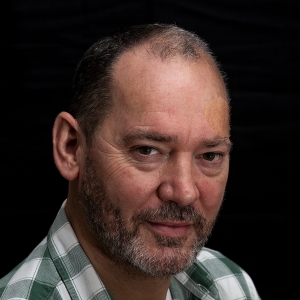 Andy is delighted to be making his Cassio debut at the Watford Palace Theatre, and with such a lovely, welcoming and talented bunch of people. Having only moved to the area in the last few years, he was previously to be found bellowing to audiences primarily across North London and Potters Bar. An old ham with a 30 year long rap sheet, most recent favourites include Sunshine on Leith, Parade, Sweeney Todd, Into the Woods, How to Succeed in Business…, Follies, Jesus Christ Superstar and Spring Awakening. Current global political figures have certainly given him a number of characterisations on which to base the role of Peron!
Andy is delighted to be making his Cassio debut at the Watford Palace Theatre, and with such a lovely, welcoming and talented bunch of people. Having only moved to the area in the last few years, he was previously to be found bellowing to audiences primarily across North London and Potters Bar. An old ham with a 30 year long rap sheet, most recent favourites include Sunshine on Leith, Parade, Sweeney Todd, Into the Woods, How to Succeed in Business…, Follies, Jesus Christ Superstar and Spring Awakening. Current global political figures have certainly given him a number of characterisations on which to base the role of Peron!
Graeme Smith
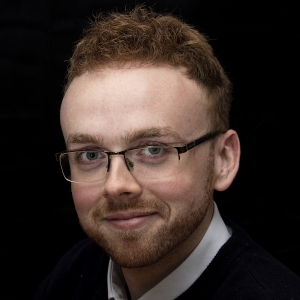 Graeme is so excited to be returning to performing after more than 8 years away from the stage, and to be doing his first show with Cassio Productions after having moved to the area around a year ago. The role of Che in this production has been incredibly challenging, but with the help of Elise, Clive and the whole (incredibly supportive) cast, it has been a challenge Graeme has thoroughly enjoyed tackling.
Before taking a break from musical theatre Graeme performed in shows for more than a decade. Previous roles include; The Phantom (Phantom of the Opera), The Baker (Into The Woods), Trevor Graydon (Thoroughly Modern Millie) and Mr Bumble (Oliver!) with various societies in the northwest of England.
Graeme is so excited to be returning to performing after more than 8 years away from the stage, and to be doing his first show with Cassio Productions after having moved to the area around a year ago. The role of Che in this production has been incredibly challenging, but with the help of Elise, Clive and the whole (incredibly supportive) cast, it has been a challenge Graeme has thoroughly enjoyed tackling.
Before taking a break from musical theatre Graeme performed in shows for more than a decade. Previous roles include; The Phantom (Phantom of the Opera), The Baker (Into The Woods), Trevor Graydon (Thoroughly Modern Millie) and Mr Bumble (Oliver!) with various societies in the northwest of England.
Adam Christie
 This is Adam’s fifth show with Cassio and he is delighted to be working with such a great team. Adam has been singing and acting since the age of 10 and has taken on roles such as: Jean Valjean in “Les Miserables”, God in “Children of Eden”, Horton the Elephant in “Suessical” as well as performing in shows such as “Spring Awakening”, “Spamalot”, which was his first show with Cassio, ‘’Sister Act’’, and as Nicely Nicely Johnson in ‘’Guys and Dolls’’ at the Watford Palace Theatre.
This is Adam’s fifth show with Cassio and he is delighted to be working with such a great team. Adam has been singing and acting since the age of 10 and has taken on roles such as: Jean Valjean in “Les Miserables”, God in “Children of Eden”, Horton the Elephant in “Suessical” as well as performing in shows such as “Spring Awakening”, “Spamalot”, which was his first show with Cassio, ‘’Sister Act’’, and as Nicely Nicely Johnson in ‘’Guys and Dolls’’ at the Watford Palace Theatre.
Beth Revens
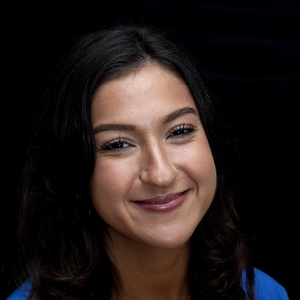 Beth studied at Chickenshed Theatre company in Inclusive Theatre/Performing arts and went into learning British sign language which she incorporates into her teaching of musical theatre in local primary schools. Beth has been performing since she was 4 years old in her local theatre group with Drama Spectrum. Beth had also achieved her Grade 8 in singing musical theatre. This is her second production with Cassio and she cannot wait to perform her first big role at the Watford palace theatre.
Beth studied at Chickenshed Theatre company in Inclusive Theatre/Performing arts and went into learning British sign language which she incorporates into her teaching of musical theatre in local primary schools. Beth has been performing since she was 4 years old in her local theatre group with Drama Spectrum. Beth had also achieved her Grade 8 in singing musical theatre. This is her second production with Cassio and she cannot wait to perform her first big role at the Watford palace theatre.
Trish Baptist
Ellie Barrett
Tom Barrett
Anya Bricknell
Andrea Bright
Elion Budden
Sarah Clampton
Debbie Day
Ian Duggan
Mel Hobbs
Emma Hooley
Rob Jarman
Alex Kenny

Serena McKay
Stephanie Pemberton
Jessica Redman
Neil Revens
Tim Redman
Ella Rogers
Miranda Solomons
Tim Solomons
Ruby Waghorn
Elise Betts
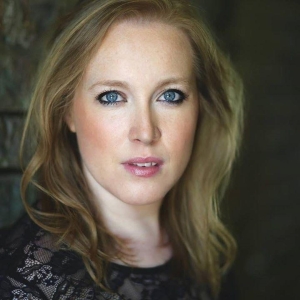 Elise is thrilled to be at The Palace Theatre with Cassio Productions for the first time since her dog, Minnie, stole the show as Bruiser Woods in their production of Legally Blonde!
Previous directing credits include RENT (The Roman Theatre Open Air Festival, St Albans), The 25th Annual Putnam County Spelling Bee, (St Albans Musical Theatre Company) which won a NODA award for Best Musical and various cabarets and concerts including Dear Steve, a celebration of Broadway Composer Stephen Sondheim (Ever After Productions at The Abbey Theatre, St Albans) and Return to the Stage for SAMTC at The Roman Theatre Open Air Festival which won a NODA Innovation Award.
Elise’s professional performing credits include What Would Julie Do? (Above The Stag, The Pheasantry and SingEasy West End), Mother and The Witch in Hansel and Gretel (Image Musical Theatre Tour) and Mrs Phagan in the promenade revival of Parade. Other favourite roles have included Truly Scrumptious in Chitty Chitty Bang Bang, Tracy Turnblad in Hairspray and Rizzo in Grease.
Elise is a member of two vocal trios The Polka Dots (1940s trio) and The Estrellas (1960s trio) and performs with them across the country. When she’s not performing Elise runs Noise Makers, award-winning baby and toddler music classes across Hertfordshire!
Elise is thrilled to be at The Palace Theatre with Cassio Productions for the first time since her dog, Minnie, stole the show as Bruiser Woods in their production of Legally Blonde!
Previous directing credits include RENT (The Roman Theatre Open Air Festival, St Albans), The 25th Annual Putnam County Spelling Bee, (St Albans Musical Theatre Company) which won a NODA award for Best Musical and various cabarets and concerts including Dear Steve, a celebration of Broadway Composer Stephen Sondheim (Ever After Productions at The Abbey Theatre, St Albans) and Return to the Stage for SAMTC at The Roman Theatre Open Air Festival which won a NODA Innovation Award.
Elise’s professional performing credits include What Would Julie Do? (Above The Stag, The Pheasantry and SingEasy West End), Mother and The Witch in Hansel and Gretel (Image Musical Theatre Tour) and Mrs Phagan in the promenade revival of Parade. Other favourite roles have included Truly Scrumptious in Chitty Chitty Bang Bang, Tracy Turnblad in Hairspray and Rizzo in Grease.
Elise is a member of two vocal trios The Polka Dots (1940s trio) and The Estrellas (1960s trio) and performs with them across the country. When she’s not performing Elise runs Noise Makers, award-winning baby and toddler music classes across Hertfordshire!
Clive Ogden
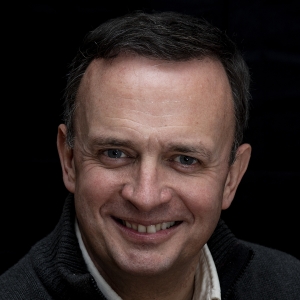 Clive is delighted to have been asked to Musically Direct Evita for Cassio Productions. Recent credits include, The 25th Annual Putnam County Spelling Bee, West Side Story, Hairspray, Grease, Follies, Thorough Modern Millie and Jesus Christ Superstar for St Albans Musical Theatre Co. Funny thing happened on the way to the Forum, and Hairspray for Tring Theatre Co. Company, My Fair Lady and Anything Goes for Berkhamsted Theatre Co, and Harpenden Musical Theatre Co. Clive would like to extend his thanks to the entire cast for working so hard during rehearsals and also to the multi-talented Elise for helping him bring this epic production to life at the Watford Palace.
Clive is delighted to have been asked to Musically Direct Evita for Cassio Productions. Recent credits include, The 25th Annual Putnam County Spelling Bee, West Side Story, Hairspray, Grease, Follies, Thorough Modern Millie and Jesus Christ Superstar for St Albans Musical Theatre Co. Funny thing happened on the way to the Forum, and Hairspray for Tring Theatre Co. Company, My Fair Lady and Anything Goes for Berkhamsted Theatre Co, and Harpenden Musical Theatre Co. Clive would like to extend his thanks to the entire cast for working so hard during rehearsals and also to the multi-talented Elise for helping him bring this epic production to life at the Watford Palace.
Emily Sissons
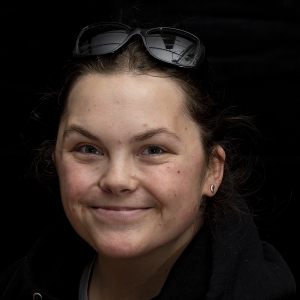
Ben Terry
Jason Brameld
Kevin Pugh
Nikki Scott
Sophie Goodman
Phil McCusker/Alex Kenny
Jill Gillam
Elion Budden, Becca Bygate, Tim Redman, Ella Rogers
Tim Redman
Lucy Faulkner & Emily Sissons
Sophie Skelton
Susan Barret, Katie Barrett, Dave Lee, Payton Gates, Steve Webb, Hollie Cooper, Mark Cooper, Jason Margolin, Lynsey Hall, Dee Keyte, Ann Richardson, Clare Hamilton
Martin Smith, Marc McDonald, Ian Parrott
Owen Williams, Chris Swallow, Rob Hall
Lauren Robson
Photos
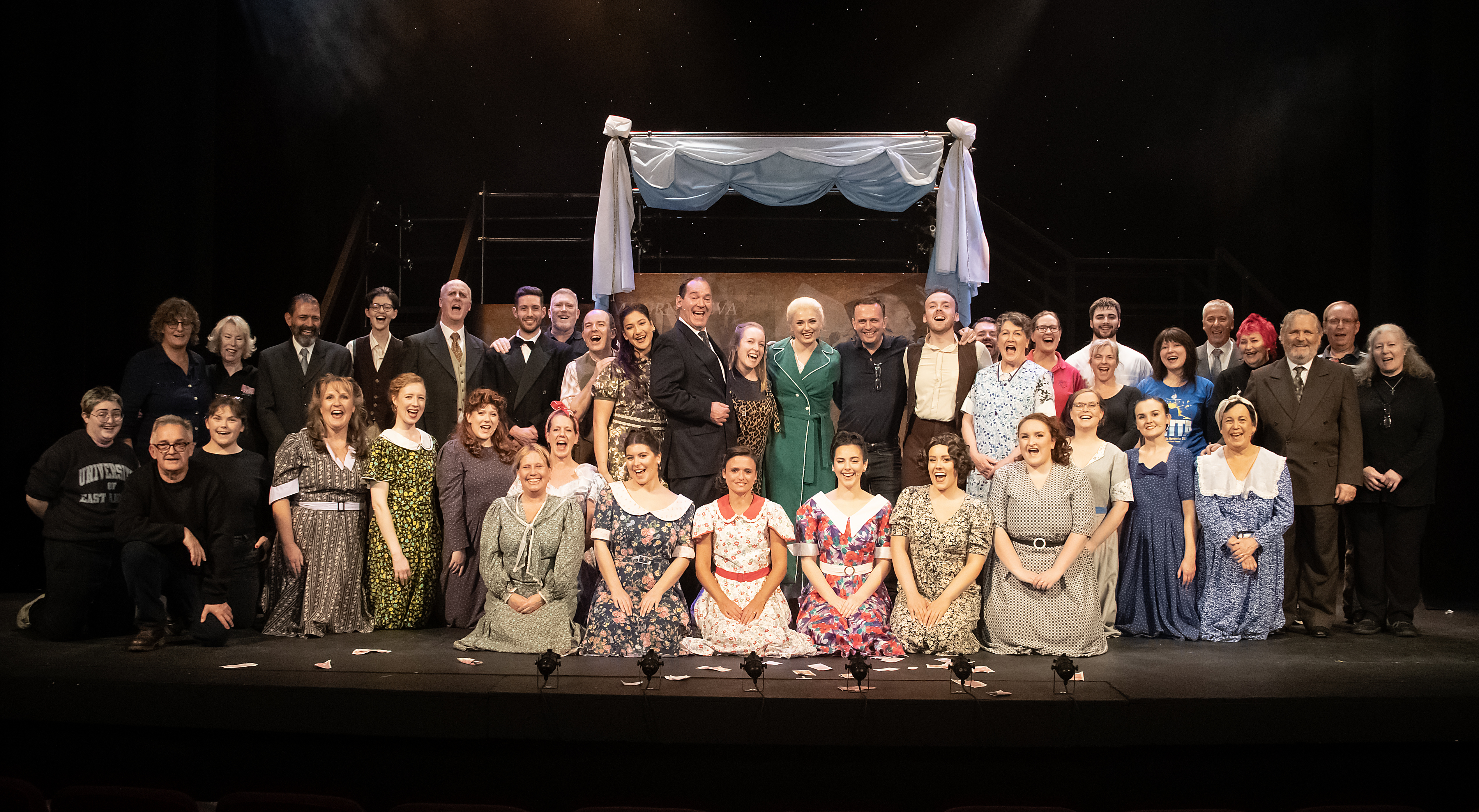
The Cast and Crew
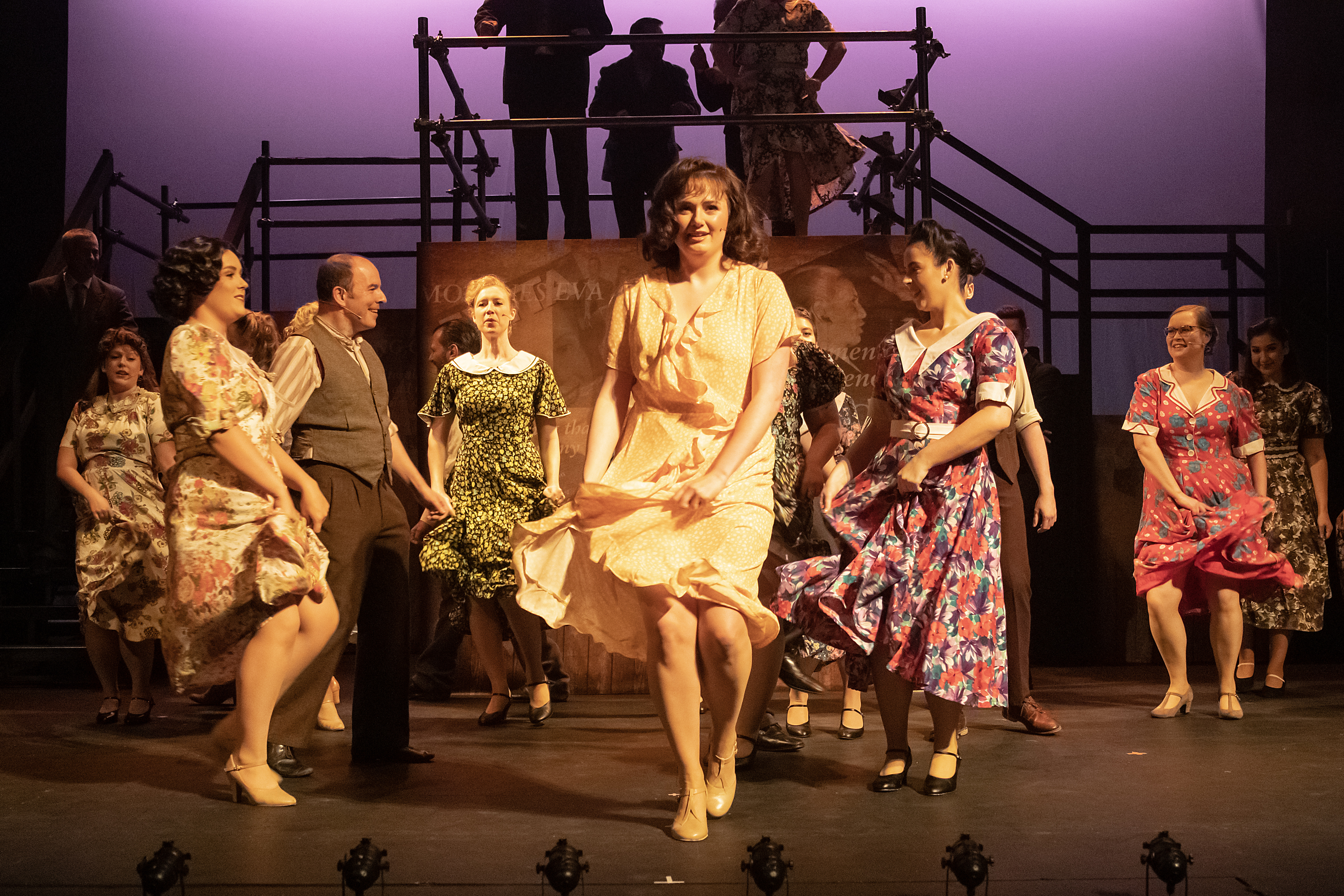
Buenos Aires
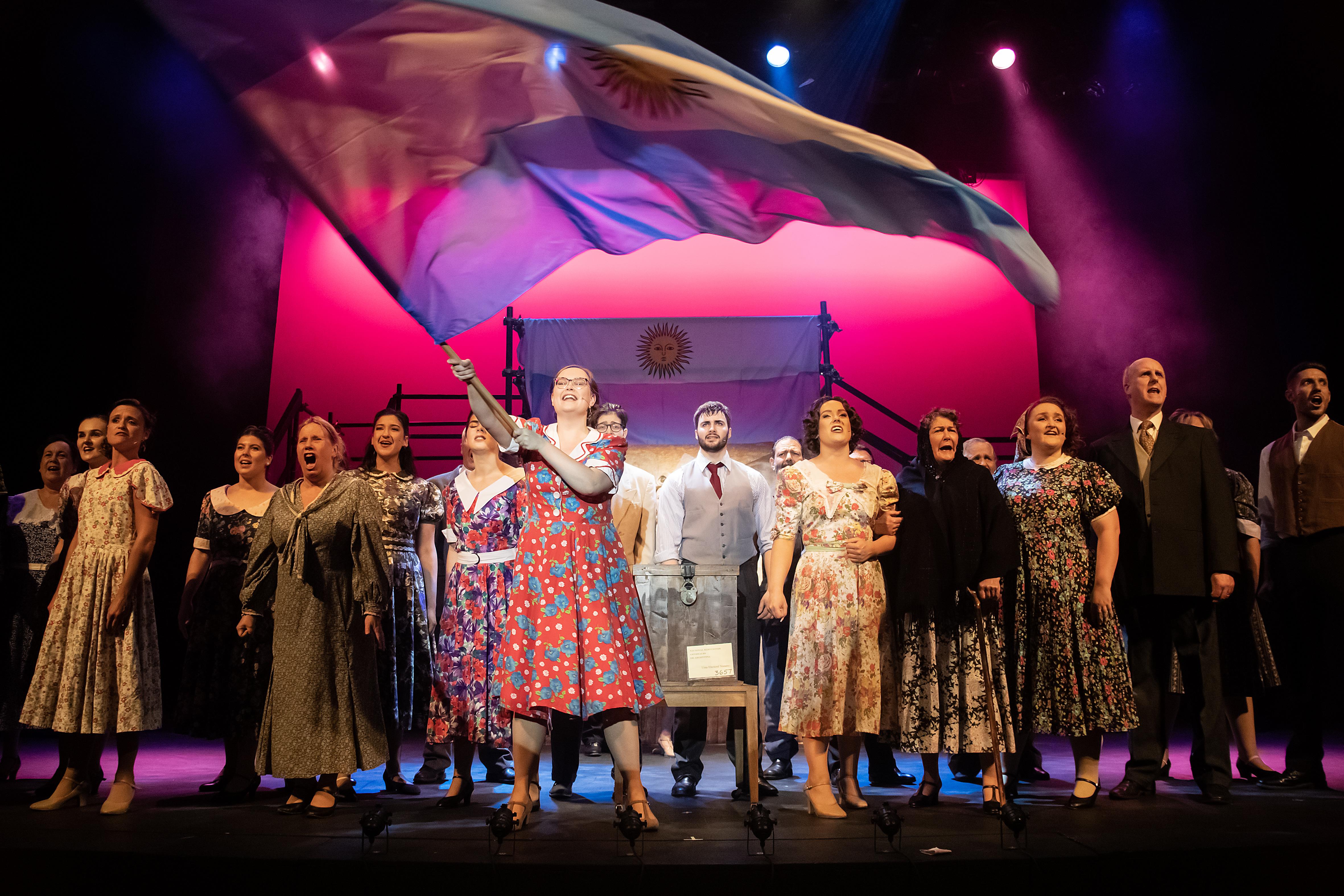
A New Argentina
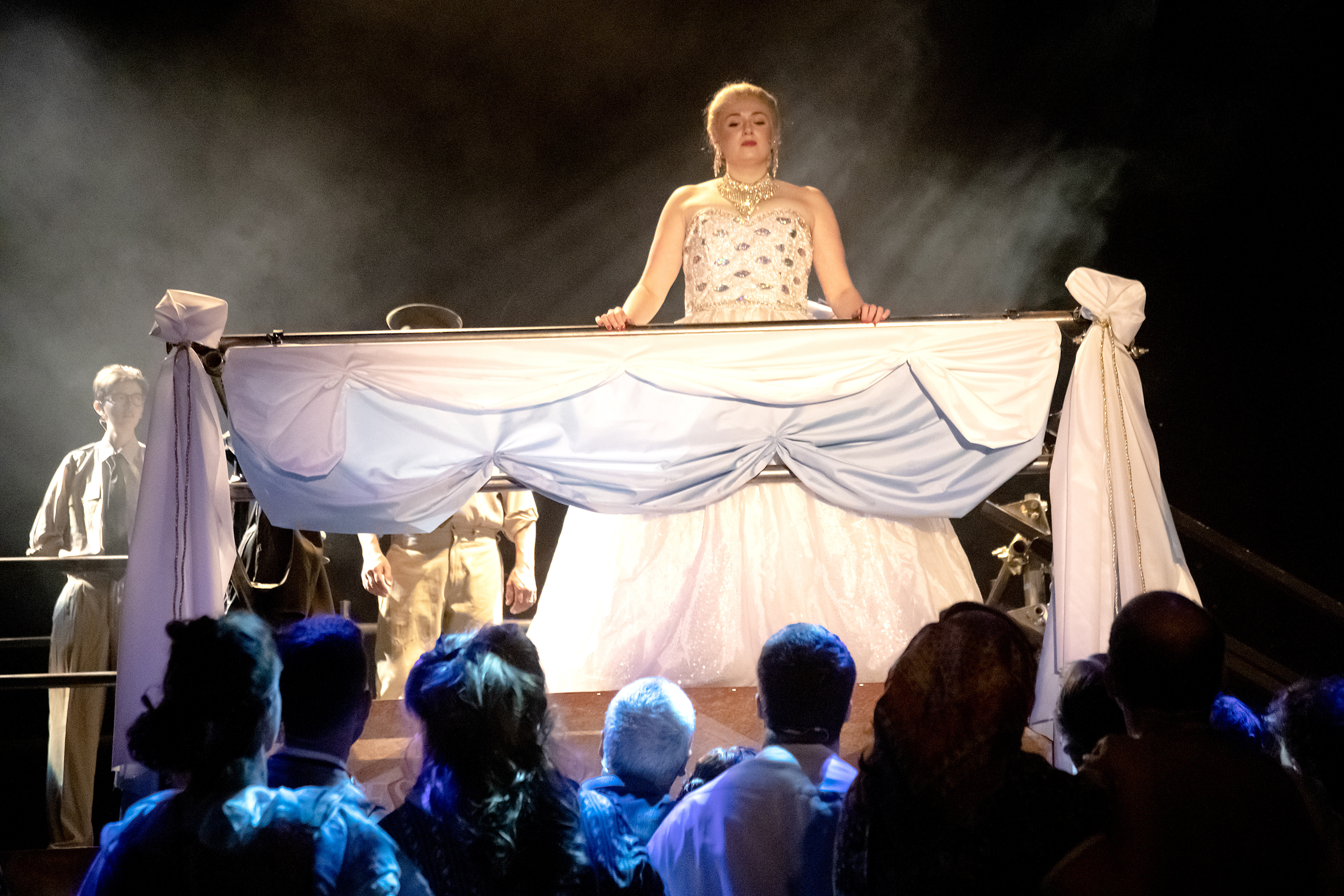
The Classic 'Don't Cry for me Argentina'















